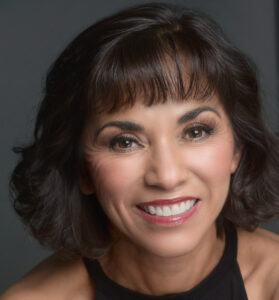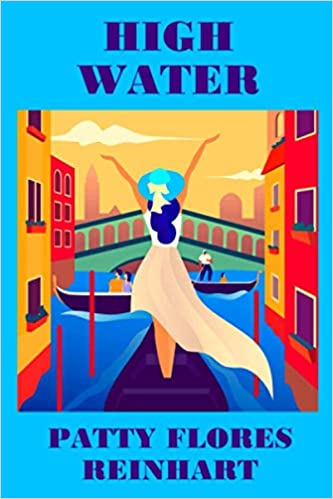The representation of people of color has certainly come a long way over the past several decades
By Patty Flores Reinhart

Patty Flores Reinhart
“ What was yours, Patty?”
What was yours, Patty?”
“Huh?” I snap to attention as my name is called.
“What was the first Broadway show you ever saw?” our music director repeats. A few of us are gathered, waiting for the rest of the cast to arrive so we can begin another rehearsal for “Evita,” and a conversation has begun regarding everyone’s first Broadway show experience.
“’A Chorus Line,’” I answer swiftly. “I’d never seen anyone who looked like me on TV, in movies, or fiction — and certainly not on stage before. I identified so strongly with the role of ‘Morales’ because I saw myself in her.”
I was 13 years old when I saw “A Chorus Line,” and it absolutely changed my life. I grew up watching classic movie musicals but never saw anyone who represented me in any of those films.
Priscilla Lopez, the talented Tony-nominated actor who originated the role of “Morales” on Broadway, became my hero.
The most important thing about that character was that she was not a stereotype. She didn’t speak with an accent, wasn’t a house cleaner, or a prostitute. “Morales” was a typical American girl who wanted to sing and dance, and happened to be Latina. She was also little and feisty — just like me!
Shortly after I saw “A Chorus Line,” I watched the film version of “West Side Story,” and was introduced to another powerful Latina, Rita Moreno. I discovered that Ms. Moreno shared the role of “Anita” with Chita Rivera, who originated the role on Broadway. I finally had three Latina women I could admire.
 I was born in El Salvador and in 1969, just before my fourth birthday, I immigrated to this country with my parents. Spanish was my first language, but within six months of arriving in the U.S., my young, malleable brain enabled me to become completely fluent in English. However, later in life, when I told people where I was born, I would often hear, “Wow, you don’t have an accent at all!”
I was born in El Salvador and in 1969, just before my fourth birthday, I immigrated to this country with my parents. Spanish was my first language, but within six months of arriving in the U.S., my young, malleable brain enabled me to become completely fluent in English. However, later in life, when I told people where I was born, I would often hear, “Wow, you don’t have an accent at all!”
“That’s because I’ve been living here almost my entire life,” I would explain, but what I wanted to say was, “Just because you’ve only recently heard of El Salvador doesn’t mean I’ve only just arrived.”
The representation of people of color has certainly come a long way since I was a child, but it wasn’t until the murder of George Floyd in 2020 when the pandemic forced everyone to finally be still long enough to fully face the pervasive systemic racism our country has never truly reconciled with, that pop culture and the art world had to admit their long history of complicity in propagating inequality.
Just days after George Floyd died, a group of theater artists who called themselves The Ground We Stand On, wrote a letter addressed to “Dear White American Theater,” as BIPOC (Black, Indigenous, People of Color) eloquently articulating what they have experienced at the receiving end of systemic racism within the theater world.
Their powerful statement can be found at: www.weseeyouwat.com/statement
I was in the middle of writing my first novel, “High Water,” when all the civil unrest erupted in response to George Floyd’s murder.
What began as my light-hearted coming-of-age story immediately transformed into something much deeper.
The main character is loosely based on my 23-year-old self, and I wrote the kind of book I wish I had had access to when I was that age.
 It became my own personal form of protest. I am thrilled that it has found an audience. Beginning at 4 p.m., June 4 I will be doing a book signing and discussion at BookSmart in Morgan Hill.
It became my own personal form of protest. I am thrilled that it has found an audience. Beginning at 4 p.m., June 4 I will be doing a book signing and discussion at BookSmart in Morgan Hill.
Back in the rehearsal hall for “Evita,” the music director continues, “So, have you ever played ‘Morales’?”
“Yes,” I beam. “And ‘Anita’!”
Chita, Rita, and Priscilla . . . I owe a great deal to those inspiring women for their trailblazing talent and tenacity.
They have paved the way for so many of us little brown girls. Remember, representation does matter.
Patty Flores Reinhart performed recently in South Valley Civic Theatre’s “Cabaret.” She wrote this column for Gilroy Life. All “High Water” profits go to her favorite charities: World Central Kitchen, the Jane Goodall Institute, and Immigrant Families Together.






